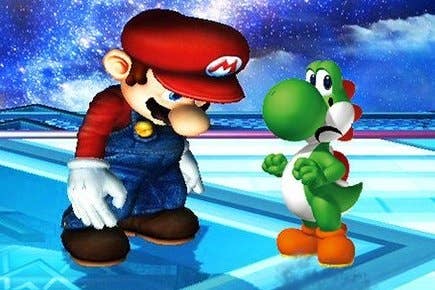Nintendo does not reward risk taking - Adelman
Dan Adelman, who oversaw digital efforts for nine years at Nintendo, reveals some insights into the company's inherent problems
While Microsoft and Sony battle it out with extremely similar consoles and technologies, Nintendo by and large marches to the beat of its own drum. Nintendo has always done things its own way, and while that means it can produce incredibly unique products, that also unfortunately means that sometimes the company gets in its own way. Former executive Dan Adelman, who left Nintendo after nine years last August and has been a champion for indies both before and after Nintendo, offered up a fascinating explanation to Dromble for why Nintendo is well... Nintendo.
"Nintendo is not only a Japanese company, it is a Kyoto-based company. For people who aren't familiar, Kyoto-based are to Japanese companies as Japanese companies are to US companies. They're very traditional, and very focused on hierarchy and group decision making. Unfortunately, that creates a culture where everyone is an advisor and no one is a decision maker - but almost everyone has veto power," he began.
"Even Mr. Iwata is often loathe to make a decision that will alienate one of the executives in Japan, so to get anything done, it requires laying a lot of groundwork: talking to the different groups, securing their buy-in, and using that buy-in to get others on board. At the subsidiary level, this is even more pronounced, since people have to go through this process first at NOA or NOE (or sometimes both) and then all over again with headquarters. All of this is not necessarily a bad thing, though it can be very inefficient and time consuming. The biggest risk is that at any step in that process, if someone flat out says no, the proposal is as good as dead. So in general, bolder ideas don't get through the process unless they originate at the top."
Moreover, Adelman suggested that Nintendo's top brass are no longer fully in touch with the modern games industry. He noted thar they "cut their teeth during NES and Super NES days...so adopting things like online gaming, account systems, friends lists, as well as understanding the rise of PC gaming has been very slow. Ideas often get shut down prematurely just because some people with the power to veto an idea simply don't understand it."
That's no doubt frustrating for someone trying to bring a fresh perspective to the company, but an even larger problem, Adelman pointed out, is that the company simply doesn't make it advantageous for the employees to take big risks on products. "...there is very little reason to try and push these ideas. Risk taking is generally not really rewarded. Long-term loyalty is ultimately what gets rewarded, so the easiest path is simply to stay the course," he said. "I'd love to see Nintendo make a more concerted effort to encourage people at all levels of the company to feel empowered to push through ambitious proposals, and then get rewarded for doing so."
Adelman also addressed the longstanding criticism that Nintendo can't secure proper third-party support. He believes it's become a self-fulfilling prophecy over the years as it often doesn't make much business sense for third-parties to get involved. "...publishers feel that they can't compete with Nintendo first party, so they choose not to invest in making high quality products for the platform. There are some notable exceptions to this over the years like Rayman Legends but many times third party publishers set low sales projections for their games, and then decide a development budget based on that. I can't say outright that they're wrong either.
"There have been cases where companies decided to pull out the stops and make a great game for Nintendo platforms only to find that consumers weren't interested. And it could be because consumers have been burnt by third party games on Nintendo platforms before."
Adelman thinks Nintendo can do better in communicating which third-party efforts are worth consumers' time and money, however. "For Nintendo to break this cycle, I think they need to invest and absorb some of the risk for third parties who try to embrace the features of Nintendo platforms and help communicate to consumers which games are on par with Nintendo first party games in terms of quality. Sony and Microsoft spend a lot of money securing exclusives - or at least exclusive features - on the top games and since Nintendo doesn't really do that, third parties focus on the other systems. I'm not sure about Sony, but I know Microsoft also has a team of technical people that will go work with a studio for a few weeks or even months to help them make their games as good as they can be on those platforms," he added. "If Nintendo doesn't want to be a first-party-only system, they may need to be more aggressive in securing those games and making sure that they're high quality."
The full interview has plenty more insight and is well worth your time.

